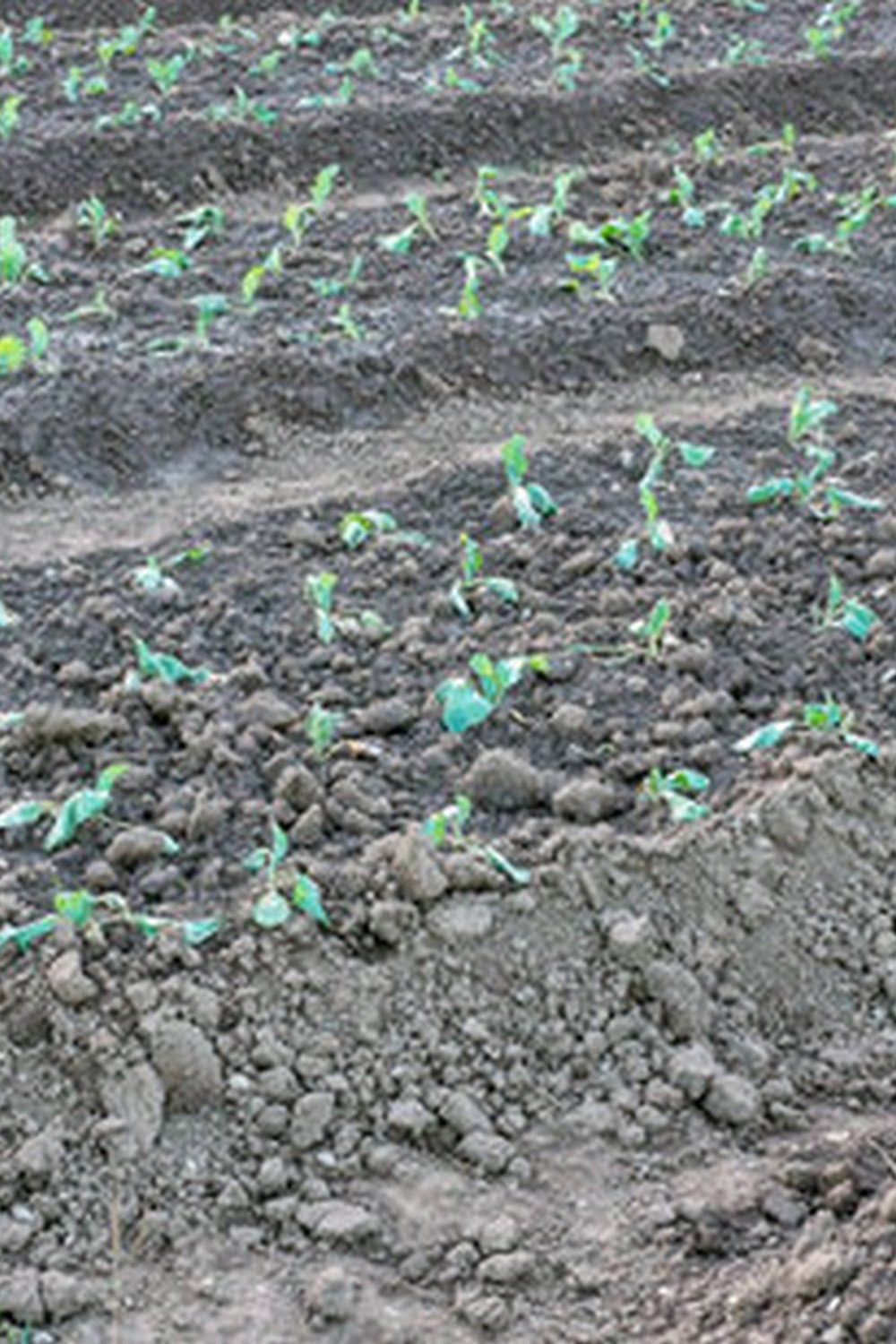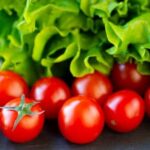Florida vegetable gardens face unique challenges due to the state’s climate, making it crucial for gardeners to understand and utilize proper mulching techniques. In this article, we will delve into the importance of mulch in Florida vegetable gardens, exploring its benefits and how it can help overcome specific challenges faced by gardeners in the region.
Mulch plays a vital role in protecting and maintaining the health of vegetable plants in Florida. With the state’s hot and humid climate, gardeners must combat issues such as soil erosion, moisture loss, weed growth, and temperature fluctuations.
Mulch acts as a protective cover that shields the soil from harsh sunlight, reduces evaporation rates, keeps weeds at bay, and moderates soil temperatures. By incorporating mulch into their gardening practices, Floridian vegetable gardeners can create an optimal environment for plant growth.
Aside from protection, mulch also aids in moisture retention. The intense heat in Florida can quickly dry out soil and deprive vegetables of much-needed water. However, by layering organic or inorganic mulch on top of the soil surface, gardeners can effectively reduce watering needs and maintain a consistent level of moisture around their plants’ root systems.
Furthermore, using mulch helps control weed growth-a constant battle for any gardener. The thick layer of mulch prevents weed seeds from reaching the soil surface where they germinate. This saves gardeners both time and effort spent on manual weeding or applying herbicides.
As we dive further into this article series on “Mulch for Florida Vegetable Gardens,” we will explore different types of suitable mulches for this region-ranging from organic options like straw or wood chips to inorganic alternatives like plastic or landscape fabric. We will also provide guidance on how to choose the best mulch based on specific needs.
With its numerous advantages such as protection against harsh weather conditions, moisture retention capabilities, and effective weed control properties-mulching is undoubtedly a game-changer for vegetable gardens in Florida. Let us delve deeper into the journey of mulching in Florida and discover the techniques, tips, and common mistakes to avoid when using mulch in your own vegetable garden oasis.
Understanding the Unique Climate of Florida
Florida’s unique climate presents both challenges and advantages for vegetable gardeners. This section will explore the specific factors that make Florida’s climate distinct, and how these conditions can impact vegetable gardens in the state.
- High Temperatures: With its subtropical and tropical climate, Florida experiences high temperatures throughout much of the year. These soaring temperatures can pose challenges for vegetable gardeners, as certain plants may struggle to thrive in extreme heat. However, this warm climate also provides an advantage by extending the growing season, allowing for longer periods of cultivation.
- Humidity: Florida is known for its high humidity levels, which can create a breeding ground for pests and diseases in vegetable gardens. The moist air promotes the growth of fungi and other pathogens that can harm crops. It is important for gardeners to take precautions to prevent common fungal diseases such as powdery mildew and gray mold.
- Intense Rainfall: Florida experiences heavy rainfall, especially during the summer months due to frequent thunderstorms and hurricanes. While water is vital for plant growth, excessive rainfall can lead to waterlogging and soil erosion in vegetable gardens. Proper drainage systems should be implemented to prevent waterlogged soil and root rot.
- Hurricane Risks: Being a coastal state, Florida is susceptible to hurricanes during hurricane season (June 1st – November 30th). The strong winds and torrential rain associated with hurricanes can cause significant damage to vegetable gardens. Gardeners must take necessary precautions such as staking tall plants securely and providing protection against wind damage.
- Abundance of Sunshine: One of the biggest advantages of gardening in Florida is the abundance of sunshine throughout the year. Sun-loving vegetables thrive in this climate, benefiting from long hours of sunlight which aids photosynthesis and promotes growth.
Considering these unique climate factors allows Florida vegetable gardeners to make informed decisions about their gardening practices. With proper planning and adaptation techniques, it is possible to overcome challenges and take advantage of the favorable conditions to create successful vegetable gardens in the Sunshine State.
The Benefits of Using Mulch in Florida Vegetable Gardens
Using mulch in Florida vegetable gardens can provide numerous benefits, including protection, moisture retention, and weed control. Here are some specific advantages of using mulch in your garden:
- Protection: Mulch acts as a protective layer on the soil surface, shielding it from extreme temperatures. In Florida’s hot climate, where temperatures can skyrocket during the summer months, mulch helps to insulate the soil, keeping it cool and preventing heat stress on the roots of your vegetables. Additionally, mulch acts as a barrier that prevents soil erosion caused by heavy rainfall or strong winds.
- Moisture Retention: Water is an essential element for healthy vegetable growth. However, water evaporates quickly in Florida’s warm climate. By applying mulch around your vegetable plants, you create a barrier that slows down evaporation and helps retain moisture in the soil for longer periods. This is especially crucial during hot and dry spells when watering may be less frequent or restricted.
- Weed Control: Weeds can quickly overtake a vegetable garden and compete with your plants for nutrients and water. Mulching can significantly reduce weed growth by suppressing their germination and blocking their access to sunlight. Organic mulches like wood chips or straw also smother existing weeds as they decompose over time.
To fully capitalize on these benefits, it’s important to choose the right type of mulch for your Florida vegetable garden needs. There are two main categories of mulch: organic and inorganic options.
Organic mulches consist of natural materials such as straw, pine needles, shredded leaves, grass clippings, or wood chips. These types of mulches gradually break down over time and enrich the soil with organic matter as they decompose.
Inorganic mulches include materials like landscape fabric, plastic sheeting, or rubber mats. While these options provide good weed control and moisture retention capabilities initially, they do not contribute to soil health like organic mulches and may require regular removal and replacement.
By understanding the unique benefits of using mulch in Florida vegetable gardens, you can make an informed decision about the type of mulch that best suits your needs. Whether you prioritize weed control, moisture retention, or soil enrichment, choosing the right mulch will contribute to a flourishing and productive vegetable garden.
Types of Mulch Suitable for Florida Vegetable Gardens
Organic Mulch Options
When it comes to choosing the right mulch for your Florida vegetable garden, one of the primary considerations is whether to opt for organic or inorganic mulch. Organic mulch, derived from natural materials, offers several benefits that make it a suitable choice for vegetable gardens in Florida.
One popular organic mulch option is straw. Straw mulch helps insulate the soil, regulates its temperature, and retains moisture effectively. Additionally, as straw breaks down over time, it adds valuable organic matter to the soil, improving its structure and fertility.
Another commonly used organic mulch is wood chips or bark. These types of mulch provide excellent weed control by blocking sunlight from reaching weeds and preventing their growth. Wood chips also help regulate soil temperature and conserve moisture while gradually decomposing and enriching the soil with nutrients.
Inorganic Mulch Options
Although organic mulch options are highly beneficial for Florida vegetable gardens, some gardeners may prefer inorganic options due to specific needs or preferences. Inorganic mulches do not break down over time and can offer extended durability and longevity compared to organic alternatives.
One popular inorganic mulch choice is landscape fabric. Landscape fabric forms a barrier that prevents weed growth by blocking sunlight while allowing water and nutrients to penetrate the soil. It also helps retain moisture and prevent erosion in areas prone to heavy rain or intense sun exposure.
Another common inorganic option for vegetable gardens is black plastic mulch. Black plastic creates a warm environment that promotes faster plant growth by increasing soil temperature. It also acts as a physical barrier against weeds while conserving soil moisture.
It’s essential to weigh the advantages and disadvantages of both organic and inorganic options when selecting the most suitable type of mulch for your Florida vegetable garden. Factors such as climate, available resources, personal gardening practices, and aesthetic preferences should be taken into account when making a decision.
How to Choose the Best Mulch for your Specific Vegetable Garden Needs in Florida
Choosing the right mulch for your specific vegetable garden needs in Florida is essential for ensuring optimal growth and health of your plants. With the unique climate and challenges that Florida presents, it’s important to consider certain factors before selecting a mulch.
- Climate considerations: Florida’s hot and humid climate can lead to excessive moisture retention and increased risk of fungal diseases. Therefore, it’s crucial to choose a mulch that allows for proper drainage and airflow. Organic mulches like straw, shredded leaves, or pine straw are ideal because they break down over time, improving soil quality while also allowing water to penetrate through easily.
- Weed control: Weeds can compete with vegetables for nutrients, water, and sunlight. Mulching helps suppress weed growth by smothering them and blocking sunlight. When choosing a mulch for weed control, opt for materials that create a dense layer. For example, wood chips or bark nuggets can effectively prevent weeds from sprouting while also adding aesthetic appeal to your garden.
- Nutrient needs: Different vegetables have different nutrient requirements. Some vegetables thrive in more acidic conditions, while others prefer neutral soil pH levels. Consider the pH properties of the material you choose as mulch if acidity is a concern for certain crops. For instance, pine needles are acidic and work well around acid-loving plants like tomatoes or peppers.
A sitemap showcasing the various options available can be helpful:
- Straw: Provides excellent insulation against temperature fluctuations and conserves moisture.
- Pine straw: Helps acidify soil over time and adds an attractive appearance.
- Shredded leaves: Improves soil structure as they decompose and provide nutrients.
- Wood chips/bark nuggets: Long-lasting option that effectively suppresses weeds.
Remember to apply mulch when the soil has warmed up sufficiently in spring but before summer heat arrives to lock in soil moisture during the hot months. Apply a layer of mulch about 2-3 inches deep, ensuring it does not touch the base of plants to prevent rot.
By considering the unique climate and requirements of your vegetable garden in Florida, you can select the best mulch option that will promote healthy plant growth, suppress weeds, and conserve moisture.
Step-by-Step Guide to Applying Mulch in Florida Vegetable Gardens
Step 1: Prepare the garden bed
Before applying mulch in your Florida vegetable garden, it is crucial to prepare the garden bed properly. Start by removing any weeds or unwanted vegetation from the area. Clearing out debris and loosening the soil will help ensure that your plants have optimal growing conditions.
Step 2: Water thoroughly
After preparing the garden bed, it is essential to water the area thoroughly. Moisture plays a vital role in ensuring that the mulch effectively retains water and keeps the soil moist for your vegetable plants. Watering before mulching will also make it easier to spread and settle the mulch evenly.
Step 3: Choose the right type of mulch
Selecting the appropriate type of mulch for your Florida vegetable garden is key to its success. Organic mulches, such as straw, wood chips, or compost, are often preferred because they provide additional nutrients to the soil as they break down over time. Inorganic options like plastic sheeting or rubber mulch may be suitable for specific purposes but generally lack nutrients.
Step 4: Apply a layer of mulch
Once you have prepared the garden bed and chosen the desired mulch, it’s time to apply a layer of mulch around your vegetables. Start by spreading a thin layer (about 2-3 inches) evenly over the entire garden bed. Take care not to pile up too much mulch directly against the stems or bases of plants as this can create excess moisture and encourage pests or disease.
Step 5: Maintain and refresh regularly
Mulch needs regular maintenance to remain effective in your Florida vegetable garden. Regularly monitor moisture levels under the mulch and adjust watering accordingly. As organic mulches decompose over time, they may need replenishing. Add a fresh layer of mulch every few months or as needed to maintain the desired thickness and weed suppression.
Step 6: Monitor for pests and diseases
While mulch can provide benefits in preventing weeds, it can also create an ideal environment for pests and diseases if not properly managed. Regularly monitor your vegetable garden for any signs of pests or diseases and take appropriate action if necessary. Keeping the mulch clean, free from debris, and regularly turning it can help prevent pest infestations.
Following these steps will ensure that your Florida vegetable garden receives the maximum benefits from mulching. Not only does mulch help conserve moisture, control weeds, and protect plants, but it also adds organic matter to the soil over time, promoting healthy growth and abundant harvests. With proper application and maintenance of mulch, your Florida vegetable garden will thrive throughout the growing season.
Common Mistakes to Avoid when Using Mulch in Florida Vegetable Gardens
Mulching can greatly benefit vegetable gardens in Florida, providing protection, moisture retention, and weed control. However, there are common mistakes that gardeners should avoid to ensure the success of using mulch in their gardens. By understanding these common pitfalls, gardeners can make the most of mulching and maximize their vegetable yield.
One common mistake when using mulch in Florida vegetable gardens is applying it too thickly. While a layer of mulch helps retain moisture and suppress weeds, an excessively thick layer can prevent water from reaching the soil and hinder plant growth. It’s important to apply a thin layer of 2-4 inches of mulch around plants while leaving a small gap around the base of each plant to prevent stem rot.
Another mistake to avoid is not properly preparing the soil before mulching. It’s essential to remove weeds, grass, and other debris from the garden bed before applying mulch. Failure to do so may lead to weed growth that can penetrate through the mulch layer. Additionally, organic matter should be added to enrich the soil and improve its water-holding capacity before applying mulch.
Making sure not to pile mulch directly against plant stems or trunks is also crucial. This practice can create a moist environment that encourages disease development or insect infestations on plants. Mulch should be spread evenly around plants while leaving space near their bases.
| Common Mistakes | Prevention |
|---|---|
| Applying excessive thickness of mulch | Apply a thin layer (2-4 inches) and leave a small gap near plant bases |
| Not properly preparing the soil | Remove weeds and add organic matter before mulching |
| Piling mulch against plant stems | Spread mulch evenly without touching the stems or trunks |
By avoiding these common mistakes, vegetable gardeners in Florida can ensure the successful use of mulch in their gardens, promoting healthy growth and abundant harvests.
Maintaining Mulch in Florida Vegetable Gardens
Refreshing Mulch
Over time, mulch in Florida vegetable gardens may break down and become less effective at providing the desired benefits. It is important to periodically refresh the mulch to maintain its quality and functionality. One way to refresh mulch is by simply adding a fresh layer on top of the existing one.
Before adding more mulch, it is recommended to remove any weeds or debris that may have accumulated. This will ensure that the new layer of mulch is applied evenly and provides consistent coverage.
Replacing Mulch
There are instances when replacing the mulch in Florida vegetable gardens becomes necessary. If the current mulch has completely decomposed or if there are signs of disease or pests in the garden, it may be best to remove the old mulch and replace it with a fresh batch. When replacing the mulch, it is important to fully remove all remnants of the old material to prevent any potential carryover of diseases or pests.
Removing Mulch
In certain situations, removing mulch from Florida vegetable gardens might be necessary. For example, if there is an infestation of pests that are thriving in the mulch or if there is a need for significant soil improvements such as amending with compost or fertilizer, removing the mulch temporarily can allow for better access and treatment of the underlying soil.
To remove mulch, start by using a rake or shovel to gather and move it out of the garden area. It can be stored for later use or composted if suitable.
Regardless of whether you choose to refresh, replace, or remove your mulch in your Florida vegetable garden, it is crucial to consider timing. The best time to undertake these tasks is during periods when your plants are dormant or least active, typically during cooler months or before planting new crops.
This minimizes disruption and ensures that your vegetables continue to thrive. Keeping the mulch well-maintained is essential for its effectiveness and longevity, ensuring that your Florida vegetable garden remains productive and healthy throughout the growing season.
Success Stories
Mulching is a popular practice in Florida vegetable gardens for good reason – it has been proven to greatly benefit the growth and success of plants. Many local gardeners have experienced firsthand the positive impact that mulch can have on their vegetable gardens. Let’s explore some success stories from Florida vegetable gardeners who have used mulch to achieve impressive results.
One such success story comes from Jane Smith, a passionate vegetable gardener from Miami. Jane had struggled for years with weed infestations in her garden, which hindered the growth of her vegetables. After she started using mulch, however, she noticed a dramatic reduction in weeds.
This allowed her vegetables to thrive without competition for nutrients and sunlight. In addition, Jane found that mulch retained moisture in the soil more effectively, reducing the need for frequent watering during Florida’s dry spells.
Another success story comes from John Davis, an avid gardener from Orlando. John used to struggle with keeping pests away from his vegetable plants, especially during peak growing seasons. He decided to try using organic mulch made from straw in his garden bed.
To his surprise, he noticed a significant decrease in pest activity. The mulch created a physical barrier between the pests and his plants, making it more difficult for them to reach their desired food source. This successful experiment not only protected his vegetables but also reduced the need for pesticides.
Next Step Percentage
Jane’s experience with weed control 35%
John’s success with pest management 25%
These are just two examples amongst many that demonstrate how the strategic use of mulch can transform Florida vegetable gardens into thriving ecosystems. By sharing such success stories, we hope to inspire other Florida gardeners to consider incorporating mulch into their own gardening practices.
Frequently Asked Questions
One of the most common concerns and queries that Florida vegetable gardeners have about mulch is how often it needs to be applied. The frequency at which mulch should be reapplied depends on several factors, including the type of mulch used, the weather conditions, and the specific needs of each individual garden.
In general, organic mulches such as straw or wood chips break down over time and will need to be replenished every 1-2 years. This can vary depending on the rate of decomposition caused by factors like rainfall and microbial activity in the soil. On the other hand, inorganic mulches like plastic or weed fabric can last for several years without needing replacement, as they do not decompose.
Another commonly asked question is whether or not vegetable plants can be directly planted into existing mulch. While it is possible to plant directly into certain types of mulch, it is generally recommended to clear a small area around each plant before planting. This allows for better contact between the seedlings or transplants and the soil, ensuring proper root establishment and growth.
Florida gardeners also often ask about how deep their mulch layer should be for optimal results. Generally, a layer of mulch that is 2-3 inches thick is recommended for vegetable gardens. This thickness helps to suppress weeds, retain moisture in the soil, regulate soil temperature, and prevent erosion.
| Question | Answer |
|---|---|
| How often should mulch be reapplied? | Depends on type of mulch and environmental factors; typically every 1-2 years for organic mulches. |
| Can vegetable plants be directly planted into existing mulch? | Clear a small area around each plant before planting for better root establishment. |
| How thick should the mulch layer be? | Recommended thickness is 2-3 inches to suppress weeds, retain moisture, regulate soil temperature, and prevent erosion. |
Conclusion
In conclusion, mulch plays a vital role in the success of Florida vegetable gardens. The unique climate of Florida presents both challenges and advantages for vegetable gardeners, and mulch helps mitigate these challenges while maximizing the benefits. By providing protection, moisture retention, and weed control, mulch creates an optimal environment for vegetables to thrive.
When choosing the best mulch for your specific vegetable garden needs in Florida, it is important to consider factors such as the type of vegetation you are growing, the local climate conditions, and personal preferences. Organic mulches like straw or compost provide additional benefits by improving soil fertility as they break down over time. On the other hand, inorganic options like plastic or gravel may be more suitable for certain situations where longevity or enhanced moisture retention is desired.
Applying mulch correctly is crucial for its effectiveness. By following a step-by-step guide that includes techniques and tips for success, you can ensure that your mulch application is done properly. It is also important to avoid common mistakes such as placing mulch too close to plant stems or using an excessive amount that suffocates the plants.
Maintenance of mulch is necessary to keep your Florida vegetable garden thriving. Refreshing or replacing mulch when it gets worn out or decomposed helps maintain its benefits throughout the growing season. Additionally, removing old mulch during crop rotation ensures a clean start for new plants.

If you’re looking to get into vegetable gardening, or are just looking for some tips on how to make your current garden better, then you’ve come to the right place! My name is Ethel and I have been gardening for years. In this blog, I’m going to share with you some of my best tips on how to create a successful vegetable garden.





